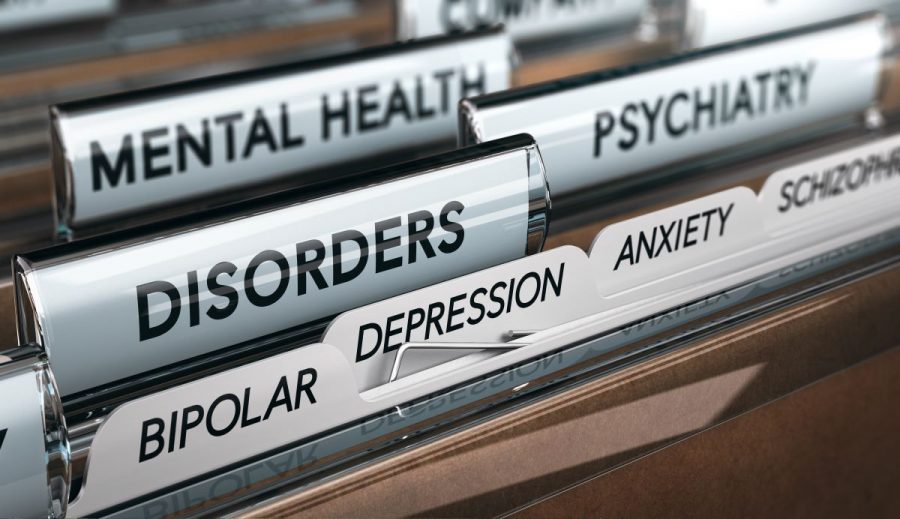Unnecessary jokes about mental illness dramatize the real conditions and should not be a habitual tendency. Around one in five teenagers in the U.S. experience a mental health disorder between the ages of 12 and 17, according to a 2017 survey by the Substance Abuse and Mental Health Services Administration serious(SAMHSA).
The textbook definition of mental illness is an ongoing condition that alters a person’s mood, thought process and behavior, according to Mayo Clinic, a healthcare company. Severe anxiety and depression are the most common disorders across the world and can lead to serious health-risk conditions including substance abuse and self-harm.
Labeling the response to a tough day as a psychological illness not only disrespects patients who actually have the condition, but also takes away from the gravity of the situation. People with emotional disorders often need to seek out medical attention, either on their own or through support from a friend, and calling a mild tick a mental disorder eliminates the meaningfulness of the phrase.
Listening within the walls of a high school or workplace, the phrase “I’m so depressed” may be heard tossed around amongst friends to describe a minor inconvenience to one’s life. This banter takes away from the idea that a disorder is classified separately because it is more detrimental to human health than everyday emotions. A frustrating event might feel extremely gloomy, but it is not depression.
A group of students may groan over a difficult assessment or a boatload of homework and compare their emotions to the illness. In reality these students are merely experiencing feelings of everyday “blues.” Sadness is typically just a normal response to discouragement or disappointment, according to the Paul Ekman Group, a private scientific team dedicated to researching human communication. While sadness is a reaction to a specific experience, someone who is depressed will feel dejected, have less motivation and a hard time engaging in about every aspect of their life.
Depression, is a neurological disease. While scientists have not uncovered the exact reason why some people contract it, the current theory is because of a change in the size of the hippocampus. The hippocampus is a part of the brain that is in charge of regulating emotions and short-term and long-term memory. When the hippocampus is smaller, the production of serotonin receptors, structures that help transmit emotional reactions to different regions in the brain, decreases. With less serotonin, the chemicals in the brain become imbalanced and social and mood behaviors stray from the normality and depression is instigated. Some cases of this disorder require medical attention, while sadness fades rather quickly.
Another phrase heard might be “I’m kind of OCD,” when someone describes a need for neatness. The difference between having obsessive—compulsive disorder (OCD) and being a neat person are substantial in their severity. OCD is a chronic disorder that stems from a fear from a personal experience and causes obsessive, repetitive behavior, according to the National Institute of Mental Health.
The urge to be neat, however, is simply a character trait or “pet peeve” that some people are more prone to noticing. Describing this feeling as a disability is wrong in the sense of what the illness actually is and devaluing to those who struggle with it. While a person might call the itch to erase excess marks from a whiteboard a mild case of OCD, someone with an actual diagnosis could constantly feel the need to organize and reorganize any personal items to manage their own inner stress. Mislabeling extreme neatness hides the fact that patients with the diagnosis have certain preferences to cope with a traumatic experience, and is not a term to be taken lightly.
It is unfair to individuals who cannot control their reactions under certain circumstances because of an emotional diagnosis to casually toss these conditions within a conversation. Rather than using the names of official disorders as descriptions of emotions, using more neutral words respects people who do, in fact, have a mental illness.
Instead of saying “I’m depressed,” a less exaggerated expression would be “I’m upset.” To be more thoughtful to those with OCD, avoid dramatizing the need to be neat by identifying it as a disorder. As these illnesses become more common among teens and adults across the globe, the choice to label emotions with consideration, whether noticeable or not, provides respect to people who experience them daily firsthand.
Are you aware of how often you dramatize a mental illness? Let us know in the comments below.























































































